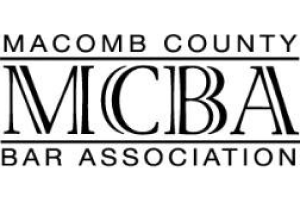- Free Consultation: (586) 264-3756 Tap Here to Call Us
Field Sobriety Tests – Set Up For Failure
Imagine you are driving home. It is late at night. You had a few beers watching the game at the local bar. You were careful not to exceed “your limit.” You feel fine when you pay your tab and leave the bar. You don’t recall fumbling for your keys in the dark. You just want to get home safely. It doesn’t occur to you that you maybe shouldn’t have had that last beer. You’re safe, right? The bar is only a short distance from your house. Although typically a careful driver, you are “hyper-sensitive” about obeying all traffic laws. You stay within the speed limit. In fact, you drive slightly under the speed limit so as to escape any unwanted attention by law enforcement. You spot a police car in front of you and to your right. You don’t want to pass the car, but it seems the police car is practically parked in its lane. You say a small prayer and decide to pass the police car. In so doing, you look up at your rearview mirror and see lights flashing. You safely pull over to the right and fish for your license, registration and proof of insurance. A police officer slowly walks to your car. He taps on your window. You roll down your window. He asks if he knows why you were pulled over. You are truly dubious as to why the officer pulled you over. In your hesitation to respond, he asks “Have you been drinking tonight, sir?”
You are asked a series of questions. The officer will later right in his report that you appeared confused, your eyes were slightly blood shot and the officer detected a strong odor of intoxicants. After asking you more questions, you are asked to step out of your car to perform a Field Sobriety Tests. Unlike testing you are familiar with where if you study and apply yourself, you can be successful, FSTs are designed for you to fail. This isn’t cynicism…this is fact.
FSTs are failure-designed tests. Nearly every motorist, regardless of sobriety levels, fails field sobriety tests. The level and degree of failure is noted by the investigating police officer. Starting any test too early is considered a failure. Performing a test too quickly or too slowly is considered a failure. Failure to follow the officer’s strict instructions is considered a failure. As an example, an officer may ask a motorist on a roadway stop to count backwards from 78, stopping at 59. Inevitably, most people count backwards from 78 but forget when to stop, finally interjecting at 56 a question, “When did you want me to stop?” According to the officer, the motorist has “failed” that field sobriety test at that point.
Because Field Sobriety Tests are failure-designed, a driver should not attempt these tests. These tests are not designed to show whether a driver is sober. Performance of these tests is completely voluntary, and a motorist should not voluntarily submit to these tests.
ALPHABET RECITING
The officer asks the motorist to recite the alphabet without singing. Although people often times complain that an officer requested that the motorist recite the alphabet backwards, this is primarily a myth. More often, the officer will request that the alphabet be recited from C through T. There is no scientific basis for this test, and the test results are not designated as reliable tests for measuring sobriety.
FINGER TO NOSE
The officer asks the motorist to extend his or her arms and close their eyes, sometimes instructing the motorist to tilt their head back, touching the tip of the nose. There is no scientific basis for this test, and the test results are not designated as reliable tests for measuring sobriety.
The SFSTs are as follows:
WALK AND TURN This test requires a driver to walk heel to toe and turn. It must be performed on a surface where a clean line is visible and where there is a level, non-slippery surface. Failure includes:
→Loss of balance during instructions. Be careful if you have balance problems going into this test. You may be questioned whether you have any health concerns that can affect your balance.
→Starting before officer’s instructions are finished. You are nervous. This is a normal response considering your predicament.
→Stopping or pausing while walking.
→Failing to touch heel-to-toe on each step
→Stepping off of line (often times the line is imaginary)
→Using arms for balance (this is subject to broad interpretation by the officer)
→Losing balance while turning/incorrect turn (also subject to broad discretion of officer)
→Performing the incorrect number of steps











